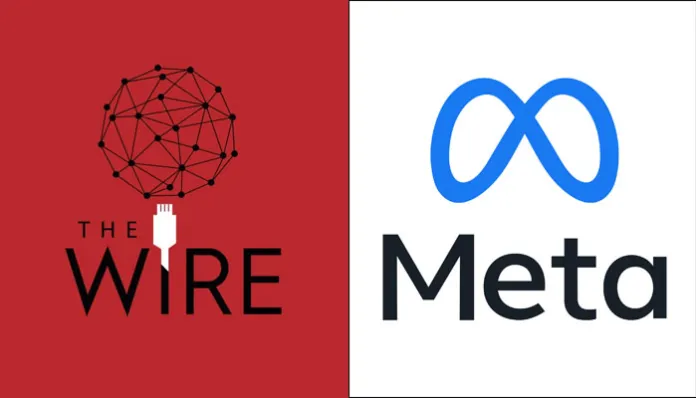In October 2022, a media outlet called the Wire, which presents itself as a critical dissenting voice and champion of free speech, published a three-story series alleging that Meta, the big tech and social media giant, had given unchecked authority to Amit Malviya, the head of the Indian ruling Bharatiya Janata Party’s (BJP) Information Technology (IT) Cell. It claimed that by using Meta’s XCheck Program, Malviya and his staff could censor content on Facebook and Instagram that they did not agree with. Meta rejected the dubious assertions made by the Wire.
By CIHS
As of October 31, 2022, The Wire has removed these stories from its publishing platform pending the conclusion of a claimed “internal review.” Although the motive behind the Wire’s smear campaign against Malviya and Meta is unknown, one analysis implies that it was done to damage the reputation of the ruling party, to give credence to allegations of content censorship, and to discredit Meta among social media users in India. Meta, possibly India’s most effective internet platform, boasts of:
● 550 million users on WhatsApp
● 410 million users on Facebook
● 400 million users on Instagram
Had The Wire’s maligned campaign carried weight, it could have had a dramatic impact on BJP’s and Amit Malviya’s image, Meta’s business in India, their popularity and trust. The Wire has been claiming that it fell prey to a ‘trap’, the veracity of its claims is based on authorities.
It is clear that The Wire engaged in cybercrime by propelling and disseminating information which was not properly backed.
In response to the false allegations against Malviya, he filed a criminal complaint with the Delhi Police against The Wire and its leadership, founder editor Siddharth Varadarajan, Sidharth Bhatia, MK Venu, and Jahanvi Sen . Much before Malviya filed the police report, The Wire filed a complaint of fraud with an intention to mislead against its own researcher and reporter Devesh Kumar. The Wire fired him after internal scrutiny and called him “highly disturbed mentally”.
While The Wire has offered an apology to Malviya (and to the ruling BJP), the fiasco has led to deepening distrust among people for independent journalism. Moreover, the back and forth between Meta and The Wire and the evidence provided by the latter have paved the way for a serious discourse on technology, social media, personal data, and cybersecurity. While the controversy will subside soon, the deeper cybersecurity issues need to be addressed more carefully.
The Wire and its unscrupulous attack on the Meta raise many concerns from the cyber and tech policy perspective. These are:
1. Data privacy: Both Stone and Karan have fallen prey to false personification by The Wire. Even if The Wire received these emails from an undisclosed source, the personal data of both these individuals were compromised, their fake identities created, and false information spread in their names. This has the potential to malign their credibility and cause them professional damage.
2. Disinformation: Through their reporting, The Wire spread misinformation and disinformation about the XCheck Program run by Meta. Later, the company’s CISO clarified that the platform is not built for reporting posts (on Facebook and Instagram) but is rather built to prevent over-enforcement.
3. Content moderation/censorship/free speech: Through its three articles, The Wire tried to portray Meta as a catalyst in BJP’s censorship drive. Indirectly, it also tried to malign the Party’s image as one which curtails freedom of speech and expression.
4. Cybercrime: All through the fiasco it can be concluded that URL addresses, email accounts, emails, “leaked internal” documents, watchlists, and references all are fake. There are discrepancies in timestamps. All of these accounts for gross cyber violations, leading to punitive cyber crimes.
The Wire's alleged evidence is all fake and accounts for gross cyber violations, leading to punitive cyber crimes.
Concluding remarks
The telos of The Wire behind running this smear campaign against Malviya, the BJP, and Meta is not ascertained yet. However, it is clear that The Wire engaged in cybercrime by propelling and disseminating information which was not properly backed. From the cybersecurity perspective, such controversies need special attention. In the case filed by Malviya against The Wire, it would be imperative for the courts of law to also look into the issue from the lens of data privacy, personal data protection, and cybercrime.
This article first appeared in https://samvadaworld.com and it belongs to them.








